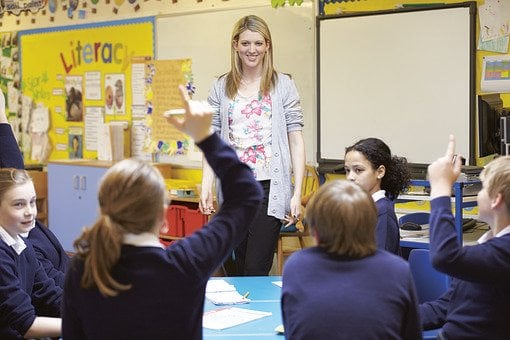Does Maryland's Basic Health and Safety Training Cover Today's Biggest Risks?
 For Maryland child care providers, is the mandatory Basic Health and Safety Training keeping pace with the evolving challenges of child care? While the course covers timeless fundamentals, its real strength lies in how it addresses the most critical and current risks facing children. This training is not a static history lesson; it is a dynamic and essential briefing on the modern #safety landscape, designed to give every provider the knowledge to anticipate, prevent, and respond to the real-world hazards children may encounter.
For Maryland child care providers, is the mandatory Basic Health and Safety Training keeping pace with the evolving challenges of child care? While the course covers timeless fundamentals, its real strength lies in how it addresses the most critical and current risks facing children. This training is not a static history lesson; it is a dynamic and essential briefing on the modern #safety landscape, designed to give every provider the knowledge to anticipate, prevent, and respond to the real-world hazards children may encounter.
How Does the Training Address the Silent Danger of SIDS?
Is there a focus on infant-specific safety? Yes, a cornerstone of the training is a dedicated focus on Sudden Infant Death Syndrome (SIDS) prevention. The course provides clear, evidence-based instruction on the "Back to Sleep" practice and the importance of creating a #safe-sleep environment, free from soft bedding, bumpers, and other hazards. By ensuring every provider, from infant room #teachers to substitutes, understands these life-saving protocols, the training directly combats one of the leading causes of infant mortality.
What Does the Course Teach About Transportation Safety?
Are risks outside the #classroom addressed? The training extends beyond the four walls of the center to cover transportation safety. This includes protocols for ensuring children are properly secured in car seats, maintaining vehicle safety, and, crucially, preventing children from being left unattended in a vehicle. This component is vital for programs that offer transportation or take children on field trips, providing clear guidelines to prevent tragic and avoidable accidents.
How Does it Prepare Providers for Medical Emergencies?
Will you be ready to handle more than a scraped knee? The Basic Health and Safety Training, as offered by MSDE-approved providers like ChildCareEd, prepares you for significant medical events. A key section is dedicated to managing allergic reactions, including the use of an epinephrine auto-injector. It also covers procedures for handling asthma emergencies and other common medical situations. This ensures that staff have the foundational knowledge to respond quickly and effectively while waiting for #emergency medical services to arrive.
Is the Training Updated to Reflect Current Health Concerns?
Does the course evolve with new information? Yes, the curriculum is designed to be responsive to current public health issues. For instance, the training includes robust sections on managing infectious diseases, a topic of heightened importance in recent years. It covers immunization schedules, proper sanitation techniques, and policies for excluding sick children to protect the entire community. By regularly updating its focus, the Maryland Basic Health and safety Training ensures providers are equipped not just for traditional hazards, but for the #health-and-safety challenges of today.
Here's your freebie! The Infant and Toddler Weekly Lesson Plan Template helps teachers plan engaging and age-appropriate activities for young children.With sections for #language-development, #sensory exploration, and social-emotional learning, this template promotes a well-rounded curriculum.
References:
-
www.childcareed.com/a/basic-health-and-safety-training-required-in- #maryland.html
-
earlychildhood.marylandpublicschools.org
-
www.healthychildren.org
- Preventative Health and Safety
- Basic Health & Safety and Breastfeeding Awareness
- CDA Bridge Bundle: Family Child Care
- Administering Basic Health and Safety ONLINE
- CDA Bridge Bundle: Family Child Care without Portfolio Review
- CDA Bridge Bundle: Infant/Toddler without Portfolio Review
- Administering Basic Health and Safety Overview
- Access for All: Inclusion and the ADA
- CDA Bridge Bundle: Preschool without Portfolio Review
- Medication Administration Training for Child Care Providers
- How to Become a Pre-School Teacher in a Child Care Center in Maryland
- Basic Health and Safety Training Required in Maryland
- UNITED STATES OF AMERICA - Maryland
- Start Your Family Child Care Business TODAY
- Focus on Health and Safety Training
- How to Start a Daycare with the Right Qualifications
- Starting Your Family Child Care Home in Maryland is Overwhelming! Where do you even start?
- Turn Your Home into a Thriving Family Childcare Business!
- Why Basic Health and Safety Training Is Crucial for Child Educators
- Basic Health and Safety: The Must-Know Training for Childcare Professionals
- MSDE Basic Health and Safety: What Does It Cover?
- MSDE Basic Health and Safety: What Maryland Childcare Providers Need to Know
- Demystifying the Online MSDE Basic Health and Safety Course
- What Must Maryland Child Care Providers Know to Keep Children Safe?
- Does Maryland's Basic Health and Safety Training Cover Today's Biggest Risks?
- 🧼Band-Aids, Germs & Giggles: Why Basic Health & Safety Training Is a Big Deal in Child Care
- What Are the Recent and Upcoming Changes to Maryland Child Care Regulations?
- Texas Weather & Outdoor Time at Daycare